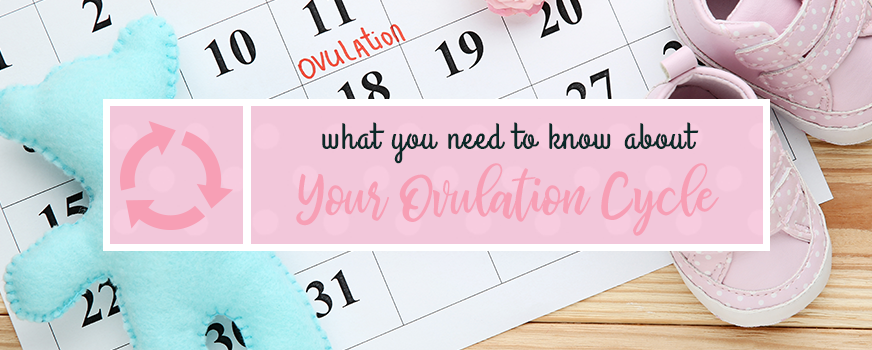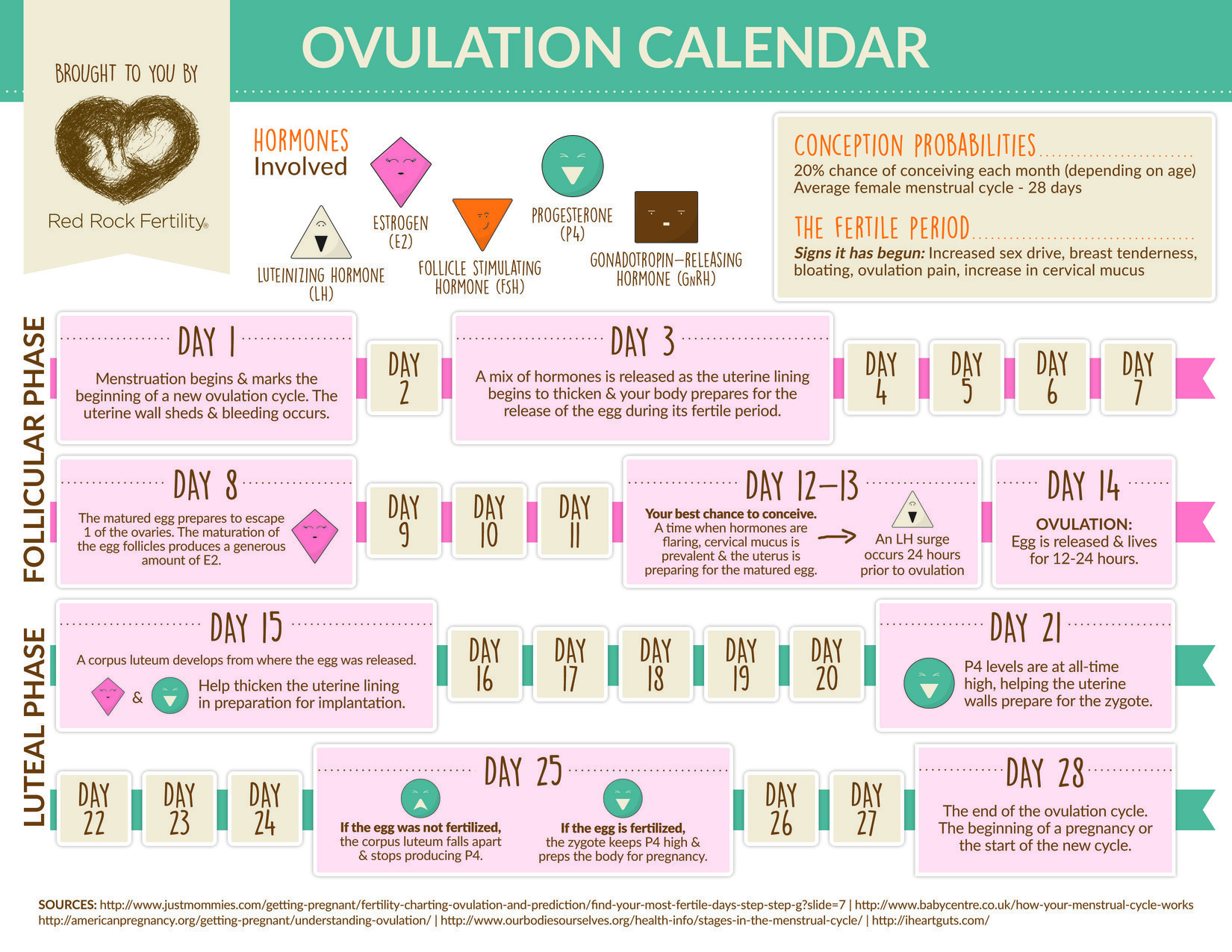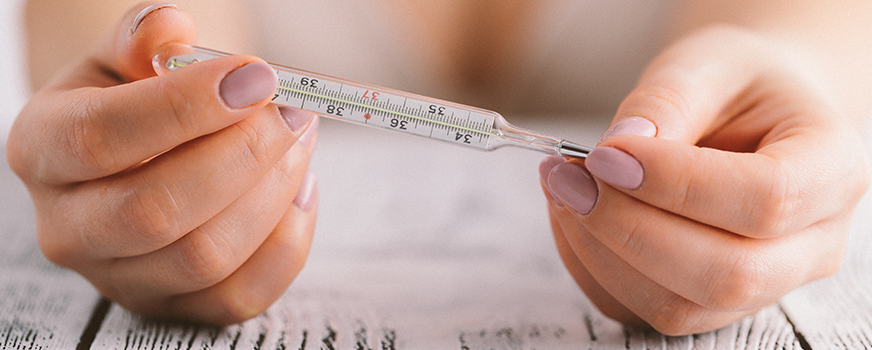
If you are looking to get pregnant soon, it is important to understand female fertility and the way your body works.. The ovulation cycle is at center stage when it comes to female fertility.Learn all about what the ovulation cycle is and how it affects your ability to get pregnant.
What is the Ovulation Cycle?
The first step to understanding ovulation is knowing what it entails and the reason for it. To break it down simply, your ovulation cycle is the timeframe in which your body releases a mature egg from the ovary, shuttles it down the fallopian tube, and presents it for potential fertilization.
This cycle introduces many hormonal and physiological changes, and the process begins in the brain with the release of hormones that stimulate egg growth. To further understand ovulation, let’s look at the ovulation cycle calendar and the phases within it.

Phases of the Cycle of Ovulation
Menstruation
The menstruation phase is the starting point of the cycle of ovulation. The entire phase generally lasts an average of 28 days for most women. On the first day of the menstruation cycle, the uterine wall sheds its lining and bleeding occurs.
Follicular Phase
The second phase in the ovulation cycle calendar is the follicular phase. This phase actually begins during the first day of the cycle of ovulation and works in tandem with the menstruation phase. During the beginning of the menstrual cycle, the pituitary gland begins to produce a mix of hormones. The uterine lining also starts to thicken as your body prepares for the release of the egg during its fertile period.
Day eight in the ovulation cycle is when the matured egg prepares to escape the ovaries. The maturation of the egg follicles produces its own hormone called estrogen. After about 12 days, hormone levels are elevated and an LH (Luteinizing Hormone) surge occurs 24 hours prior to ovulation. This timeframe in your ovulation schedule is considered your fertile period and the best time to conceive.
Signs of your fertile period include increased sex drive, breast tenderness, bloating, increase in cervical mucus, and ovulation pain. On day 14 of your ovulation schedule, the egg is released and lives for 12-24 hours, marking the beginning of the ovulation cycle calendar.
Luteal Phase
The luteal phase is the last step in the cycle of ovulation and lasts approximately two weeks. During this phase in the ovulation cycle calendar, the corpus luteum develops from where the egg was released. Estrogen and progesterone help thicken the lining of the uterus to prepare for implantation. Progesterone levels will also increase to help the uterine walls prepare for the zygote.
Day 25 is a critical phase in the cycle of ovulation because the egg fertilization will be an indicator of successful pregnancy. If the egg is fertilized, the zygote keeps progesterone levels high and prepares the body for pregnancy. On the other hand, if the egg isn’t fertilized, the corpus luteum falls apart and stops producing progesterone.

Ovulation Tips and Considerations
While the body automates the process, there are some things that you can do to support and encourage a healthy cycle of ovulation when trying to conceive. Start incorporating these lifestyle tips into your daily routine to ensure your ovulation schedule is on track and your body’s ready for conception.
Hydrate
While the old adage of 8 glasses of water a day isn’t fully accurate, ensure that you drink enough water to hydrate your body each day. Lack of water can cause decreased circulation and other medical concerns. Water intake is incredibly important for preparing your body for a successful cycle of ovulation and ultimately, pregnancy.
Exercise
What isn’t exercise good for? From fertility yoga to just walking around the block, exercise will increase blood flow, oxygenate the blood, and even lift your spirits if you’re feeling down. Anything you can do to make your body as healthy as possible will support a healthier cycle of ovulation.
Nutrition
Give your baby a head start by loading your body with essential nutrients that can boost female fertility and increase your odds of a successful pregnancy. A healthy diet is essential, so ensure that you include foods that contain loads of vitamins, minerals, essential fats, and amino acids. Examples include dark green, leafy vegetables, citrus fruit, bananas, sweet potatoes, wild caught fish, and avocados. In addition to focusing on what to put in your body, try to avoid excess amounts of sugar or caffeine. Hormonal balance is often easier to achieve when you limit these items from your diet.
The cycle of ovulation and female fertility are miraculous things to behold. Work with your fertility specialist today to begin tracking and managing your own cycle to dramatically increase the odds of conception. Please contact Red Rock Fertility Center at 702-749-4676 or complete the form fill below to schedule an appointment. [ninja_form id=1]



